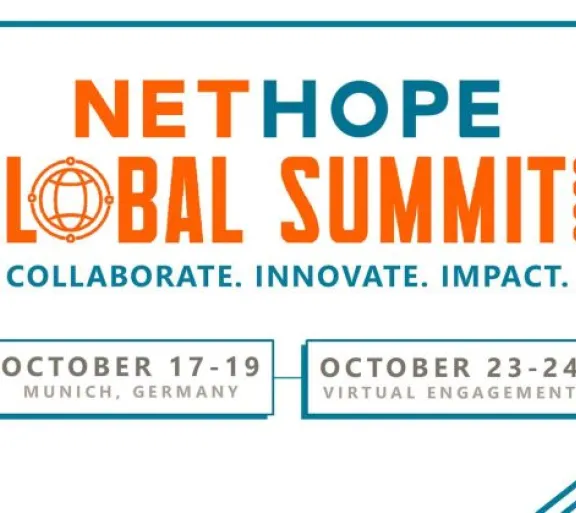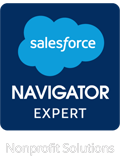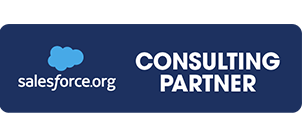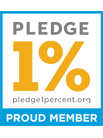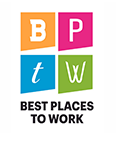NetHope Conference 2023: Fostering Localization and Empowerment
NetHope is a remarkable gathering of individuals who share a deep belief in the potential of technology to improve the well-being of people facing challenges due to disasters and humanitarian crises. Much like our mission at Idealist Consulting, NetHope's core mission speaks to bridging the digital divide by employing technology to safeguard the world's most vulnerable communities. This year, NetHope sessions explored various avenues to provide the necessary solutions in response to this call to action. It was a particularly special year as many of the attendees had not seen each other in nearly two years due to the COVID pandemic - which brought a bit of a homecoming vibe to the experience.
At the heart of the conference this year was the concept of localization. Localization goes beyond mere assistance by including the process of shifting the control and decision-making power in humanitarian response to local actors and organizations. It involves empowering local communities and authorities in planning, implementing, and managing humanitarian programs.
That said, the NetHope community faces significant challenges in supporting this goal, particularly the reduction in governmental funding perpetuating the “Nonprofit Starvation Cycle” for humanitarian efforts. To address this, the prevailing sentiment at NetHope is that the private sector must step in to fill the funding gap as well as provide easier access to technology. To that end, the NetHope community demonstrated a commitment to strike the right balance between an academic mindset and one of action. It's crucial to prevent an overemphasis on heavy academic analysis, which can often confuse the private sector, a crucial partner in achieving the NetHope community's goals.
To distill the NetHope experience, provide a brief overview of essential topics, and express my observations, I will examine six aspects of how I see NetHope currently engaging the community in supporting its mission. Furthermore, I will explore how we as a network can iterate on these topics at next year’s conference in Washington D.C.
Diversity and Inclusion
NetHope has been accelerating its efforts around diversity and inclusion over the years. Women of NetHope, Ethical AI, Bridging the Digital Divide, the NetHope scholarship program, and the Regional Chapter Network have all seen tangible results from their efforts. For example, it was clear to me that more women were represented in both attendance and sessions this year than in previous years. And of course, the Women of NetHope Inspiration Dinner was a continued celebration of this evolution. Yet this representation still falls short of the humanitarian space it supports. It is estimated that over 40% of the half a million humanitarian workers who provide frontline care during emergencies, conflicts, and disasters, are women. If localization is indeed the goal, the NetHope community will need to cultivate a deeper connection with the causes we serve, and the women working towards those causes. This could mean more women taking on speaking roles, higher representation of women-led businesses, and creating space for more women-led presentations.
Empowering Regional and Field Offices
The conference this year emphasized the importance of empowering field offices, a direction that aligns with the goal of localization. However, as a community, we can do more to support the education and empowerment of local offices beyond enabling more effective ways to distribute funding. Encouraging more fundraising efforts specifically aimed at educating regional and field offices is one solution that could significantly advance these efforts. While it may not be as exciting as drone deployment or AI development, fundraising is the backbone of any successful mission. Providing fundamental direction on how field offices can leverage technology to collect donations would be a great step in localization efforts.
Better, Faster, Cheaper (Pick Two)
NetHope enthusiastically embraced technology empowerment this year. There was a clear endorsement of the pivotal role technology plays in empowering remote communities. However, the narrative sometimes skewed towards the idea of achieving better, faster, and cheaper all at once, which can be a challenging endeavor. While I understand the spirit behind this aspiration, it's rarely, if ever, attainable. Effective localization will require straightforward yet affordable technology. Hence, our primary emphasis should be on speed and cost, being cautious not to overcomplicate solutions in our pursuit of "better."
A Younger Voice
This year's NetHope conference welcomed a significant influx of new faces. Nearly half of the plenary attendees were newcomers, infusing fresh ideas and energy into the event. To further accelerate this process and involve smaller, younger NGOs, the community could explore options like promoting virtual attendance options or offering discounted access to tap into the NetHope community's collective expertise. The enthusiasm and engagement of this younger audience greatly contributed to the event's success by opening up discussions to new topics and adding a newfound enthusiasm.
Platform Agnosticism
NetHope demonstrated a more platform-agnostic approach this year, which brought many advantages, including fostering diversity of ideas and promoting creative discussions to bridge the digital divide. Shifting the focus from specific platforms to broader solutions is a positive first step, but as a community, we should strive for more cross-collaboration between solutions. Future NetHope conferences could benefit from presentations illustrating how multiple solutions work together, providing attendees with more holistic and customizable digital solutions to solve challenges.
Talk Less, Listen More
While NetHope continues to diversify its sponsorships and exhibitors, there is still a need to educate the private sector on how to engage with humanitarian organizations, beyond sponsorship and exhibition. Many attendees spoke to the importance of the private sector listening and asking questions of those working for humanitarian missions. Providing opportunities for sponsors and exhibitors to better understand how to engage with the community is essential. Introducing a session track dedicated to private-sector learning would be a great addition to the 2024 NetHope conference. The humanitarian community needs the private sector to listen to their most pressing needs and concerns. Creating a space for this to coalesce at the conference in the coming years is essential.
The north star for next year’s conference should be a focus on engaging the private sector, expanding the NetHope ecosystem, and prioritizing localization efforts. Idealist Consulting is dedicated to accelerating this journey and we encourage others to join us by enrolling in the NetHope Get Involved Page. This initiative focuses on themes including leadership in a digital age, digital inclusion, digital protection, AI and innovation, and digital solutions for climate adaptation and resilience. In closing, we look forward to seeing all of you in Washington D.C. next year and are excited to see the efforts of 2023 come to life in 2024.


